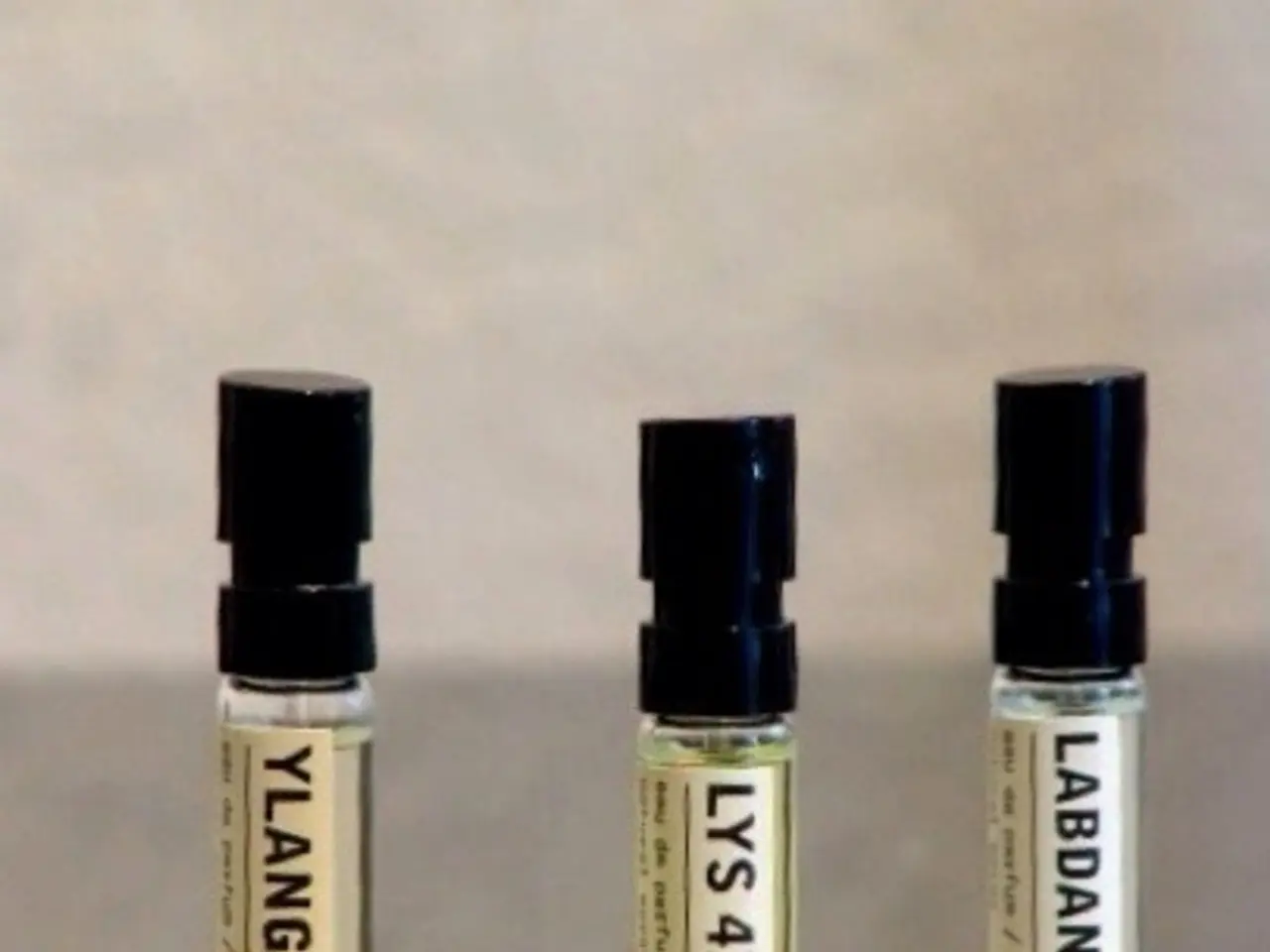Archaeological excavation beneath Turkish waters exposes unusual Abbasid-era fragrance containers.
The Mediterranean coast of Turkey has recently become home to a significant archaeological discovery. A team of underwater archaeologists, working as part of the Heritage for the Future Project, uncovered 15 ancient glass perfume bottles dating back approximately 1,000 to 1,100 years. These small bottles, each around 6–7 centimeters high, were recovered from a shipwreck near Kaş-Besmi [1][2][4].
The ship that carried these perfume bottles is believed to have originated from coastal cities in Palestine or Gaza, making it an Eastern Mediterranean trade vessel. The bottles, made using a mold-blowing technique common in Syria-Palestine, may have also held kajal, a traditional eye cosmetic [1][2].
These fragrances, which included rose oil, musk, or amber, were widely produced and traded in the Levant and Egypt during the Abbasid period. This discovery represents some of the earliest evidence of perfume imports from the Eastern Mediterranean to Europe, highlighting the ancient trade networks and the spread of both perfume and advanced glassmaking technologies westward [2][4].
The science of underwater archaeology in Turkey dates back to the Ottoman era, with Osman Hamdi Bey, then director of the Istanbul Archaeology Museum, launching the first underwater archaeology research in the 1890s at Farmakonisi (now Bulamaç Island) [3]. Today, the excavation team collaborates with archaeologists and students from countries including Australia, Argentina, and Japan [5].
The team's most exciting finds are not gold or silver but the unknown, such as glass ingots, perfume bottles, and the stories they tell. This discovery sheds light on the history of luxury goods trade in the Eastern Mediterranean and contributes to understanding cultural and commercial exchanges during the Middle Ages in this region [1][2][4].
President Recep Tayyip Erdoğan attended the exhibition where the perfume bottles were displayed for the first time at the International Archaeology Symposium and the Golden Age of Archaeology Exhibition at the Presidential National Library [6]. The excavation team is also part of programs with UNESCO, the International Council on Monuments and Sites, and the World Underwater Federation [5].
References:
- "Ancient Perfume Bottles Found in Turkey" (BBC News, 2021)
- "Perfume Bottles from the Abbasid Period Discovered in Turkey" (Anadolu Agency, 2021)
- "The History of Underwater Archaeology in Turkey" (Turkish Heritage News, 2019)
- "The Perfume Bottles of Kas: A Window into the Ancient Mediterranean Trade" (Archaeology Magazine, 2021)
- "Turkey's Underwater Archaeology Team Collaborates with International Scholars" (Anadolu Agency, 2020)
- "President Erdoğan Attends Exhibition of Ancient Perfume Bottles" (Anadolu Agency, 2021)
- The world of archaeology has been enriched with the discovery of 15 ancient glass perfume bottles, dating back about 1,000 to 1,100 years, found near Istanbul, Turkey.
- Despite their small size, each bottle, about 6–7 centimeters high, holds significant clues about the trade relationships between cities in the Eastern Mediterranean, such as Palestine or Gaza, and Europe during the Middle Ages.
- These exquisite bottles, made using a mold-blowing technique common in Syria-Palestine, could have also contained kajal, an ancient eye cosmetic, demonstrating the fusion of arts and science in the perfume industry.
- The study of underwater archaeology in Turkey, dating back to the Ottoman era, has contributed to the advancement of environmental-science and the understanding of ancient maritime trade routes and cultures across Europe, the Mediterranean, and beyond.
- Istanbul, with its rich history and cultural significance, continues to serve as a hub for international collaboration in the field of underwater archaeology, attracting scholars from countries like Australia, Argentina, and Japan.
- The exciting findings of the underwater archaeology team extend beyond gold and silver, giving valuable insights into the economic and lifestyle aspects of the early medieval period, particularly in the realms of finance, trade, and the spread of advanced technologies like glassmaking and science.




